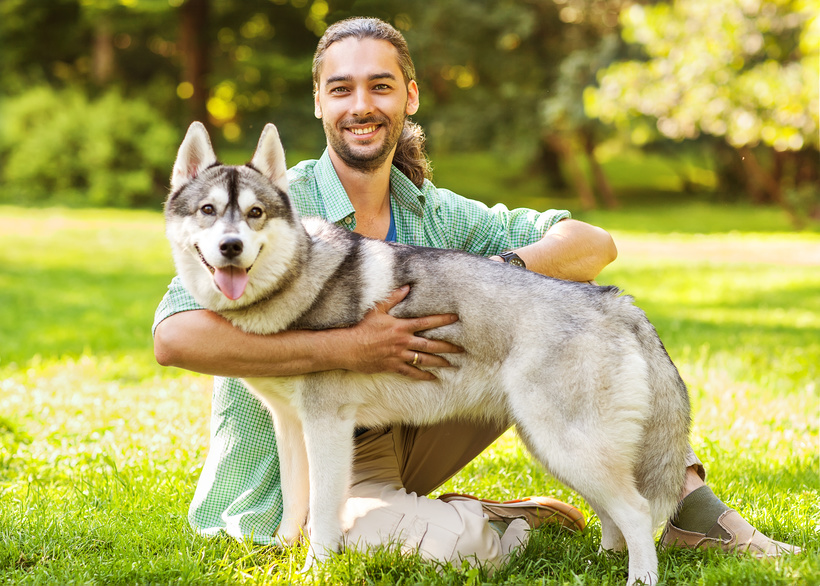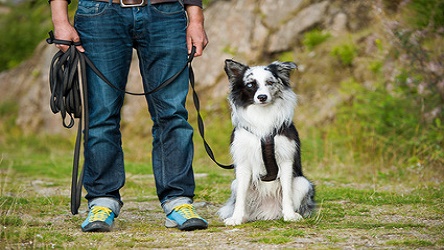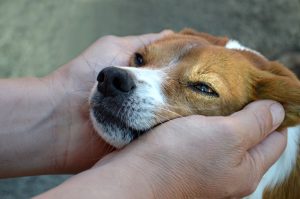The Level 4 Diploma in Canine Training and Behaviour

This qualification is aimed at those wishing to expand their knowledge of canine anatomy and physiology, training and behaviour, the role of exercise and nutrition and how to run dog training classes.
The subject of dog training is of great interest to many dog owners and those working or volunteering hands-on with dogs. Understanding dog body language, influences on behaviour and how dogs think is of great benefit to anyone dealing with dogs.
All careers working with dogs require an understanding of canine behaviour, including being able to interpret canine body language, recognising and dealing with unwanted behaviour and preventing problems from occurring. This understanding is appropriate for everyone in contact with dogs including dog owners, dog walkers, kennel workers, dog sitters, dog re-homers, animal welfare officers and of course dog behaviour practitioners.

As with all of our theory courses, you are assigned your own personal tutor who will support and guide you throughout the course. All of our dog courses are written in consultation with behaviour experts, rescue workers and experienced tutors who all support force-free training. We do not support aversive techniques or “tools” in any form and only use those techniques that are force-free and are supported by science.
Human-animal interactions cause conflicts on an individual, local, national and international level and are increasingly subject to legal regulation.
The domestic dog (Canis lupus familiaris) has been man’s best friend and most loyal companion since antiquity. With a population spanning more than 500 million worldwide, dogs are the second most popular companion animal (after cats) on a global scale.

*You will have access to the course for 12 months only. You can purchase course extensions.
Level 4 Diploma in Canine Training and Behaviour Management Qualification
Unit Summary (361 GLH)
Unit 1
Dealing with Canine Behaviour Problems
This unit looks at some of the most common behaviour problems – their causes and solutions. Long term kennelling can also cause a number of difficulties and these are covered, along with solutions.
The wellbeing of dogs in rescue is also covered, along with humane training equipment. This unit also looks at various alternative therapies that may be considered in conjunction with behaviour modification.
Unit 2
Canine Anatomy and Behaviour
From this unit, students will gain an understanding of the skeletal, muscle and locomotory systems and how these body systems can impact behaviour.
Unit 3
Canine Guardians
Unit 3 looks at the human role in behaviour problems and how lifestyle can influence a dogs behaviour.
Unit 4
Canine Learning Theory
From this unit, you will gain a thorough understanding of classical and operant conditioning, understand the various rates of reinforcement and when to use them and an understanding of the way dogs learn and how we should be training them. Clicker training is also covered in this unit. Please note, we only support force-free training methods.
Unit 5
Canine Nutrition
This unit covers the major nutrients that dogs require and provides an understanding of the anatomy and physiology of the canine digestive system. Students will learn the value of various dietary plans for various health conditions and how food can impact behaviour.
Unit 6
Canine Physiology
Unit 6 looks at physiology – circulatory system, the nervous system, the urinary system, skin, the reproductive system, digestive system and the respiratory system.
Unit 7
Canine Play and Exercise
Play and exercise can influence behaviour. This unit looks at the consequences of too much or too little play and exercise and how we can use play to improve unwanted behaviour. An understanding of mental stimulation and environmental enrichment is also covered.
Unit 8
Influences on Canine Behaviour
Unit 8 considers the role of nature versus nurture, along with various medical conditions that can impact behaviour. The role of stress in unwanted behaviour problems is also considered.
Unit 9
Running a Dog Training Class
By the end of this unit, you will gain an understanding of the essential business requirements and skills needed to run classes and be able to plan a training class. It also considers the limitations of dog training.
We offer a selection of accredited and employer recognised courses specifically designed for careers working with animals.
If you have any questions about our courses, please contact us.
We’ve assisted many people to achieve their goal to work with animals. Read more about our 5-star reviews and student success stories.
Gain relevant training to achieve your goal to work with animals.

